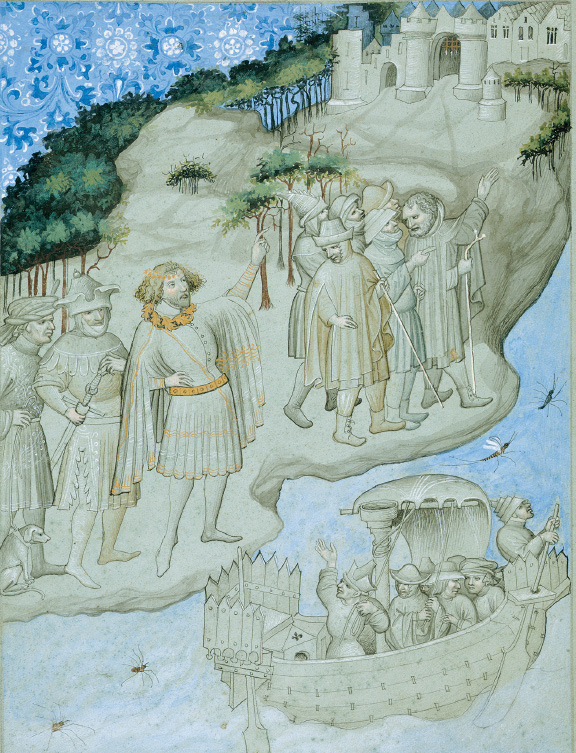Causes of European Expansion
Europeans sought to expand their international reach for many reasons. By the middle of the fifteenth century, Europe was experiencing a revival of population and economic activity after the lows of the Black Death. This revival created demands for luxury goods, especially spices, from the East. However, the conquest of Constantinople by the Ottomans gave the Muslim empire control of trade routes to the east and blocked the fulfillment of European demands. Europeans thus needed to find new sources of precious metal to trade with the Ottomans or to find trade routes that bypassed the Ottomans.
Religious fervor was another important catalyst for expansion. The passion and energy ignited by the Christian reconquista of the Iberian Peninsula encouraged the Portuguese and Spanish to continue the Christian crusade. In 1492 Spain conquered Granada, the last remaining Muslim state on the Iberian Peninsula. Just seven months later, Columbus departed across the Atlantic.

Combined with eagerness to gain wealth and to spread Christianity were the desire for glory and the urge to chart new waters. Scholars have frequently described the European discoveries as a manifestation of Renaissance curiosity about the physical universe. The journals kept by European voyagers attest to their motives and fascination with the new peoples and places they visited. When the Portuguese explorer Vasco da Gama reached the port of Calicut, India, in 1498 and a native asked what he wanted, he replied, “Christians and spices.”1
Eagerness for exploration was heightened by a lack of opportunity at home. After the reconquista, young men of the Spanish upper classes found their economic and political opportunities greatly limited. The ambitious turned to the sea to seek their fortunes.
Whatever the reasons, the voyages were made possible by the growth of government power. The Spanish monarchy was stronger than before and in a position to support foreign ventures. In Portugal explorers also looked to the monarchy, to Prince Henry the Navigator in particular (page 414), for financial support and encouragement. Monarchs shared many of the motivations of explorers. In addition, competition among European monarchs was an important factor in encouraging the steady stream of expeditions that began in the late fifteenth century.
Ordinary men chose to join these voyages to escape poverty at home, to continue a family trade, or to find better lives as illegal immigrants in the colonies. However, common sailors were ill-paid, and life at sea meant danger, hunger, and overcrowding. For months at a time, 100 to 120 people lived and worked in a space of 1,600 to 2,000 square feet.
The people who stayed at home had a powerful impact on the process and a strong interest in it. Royal ministers and factions at court influenced monarchs to provide or deny support for exploration. The small number of people who could read served as an audience for tales of fantastic places and unknown peoples. One of the most popular books of the time was the fourteenth-century text The Travels of Sir John Mandeville, which purported to be a firsthand account of the author’s travels in the Middle East, India, and China. These fantastic tales of cannibals, one-eyed giants, men with the heads of dogs, and other marvels were believed for centuries. Columbus took a copy of Mandeville and the equally popular and more reliable The Travels of Marco Polo on his voyage in 1492.